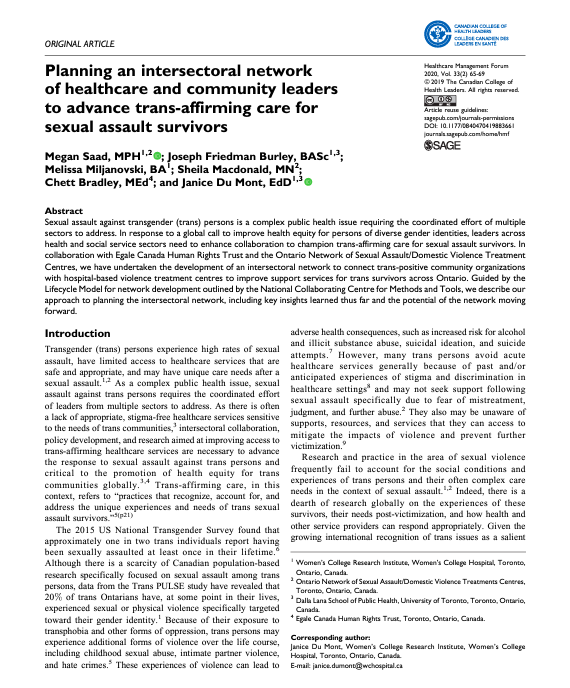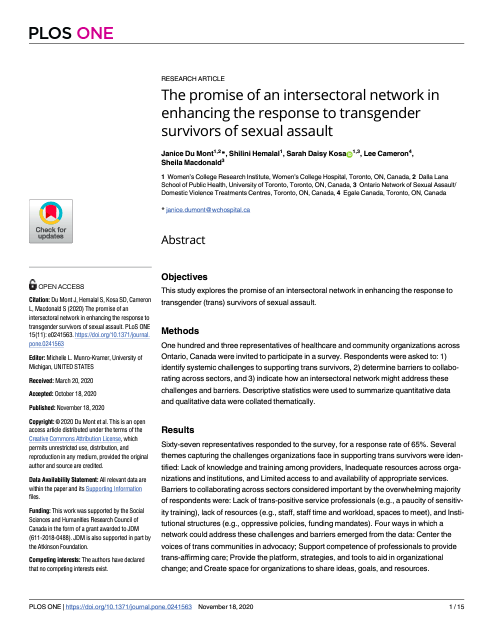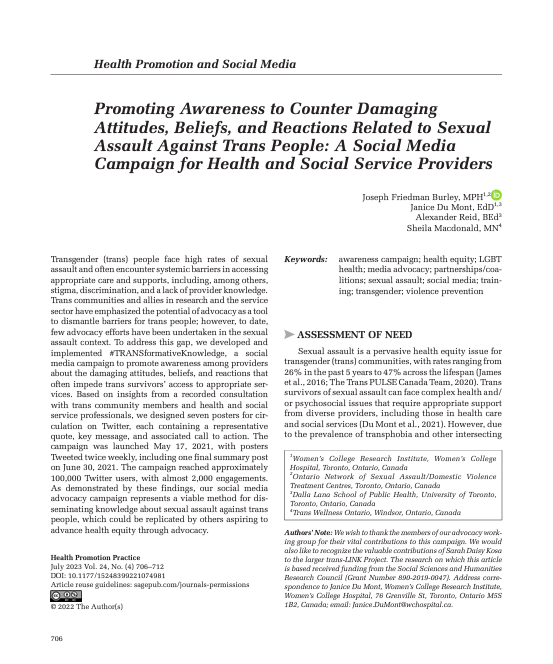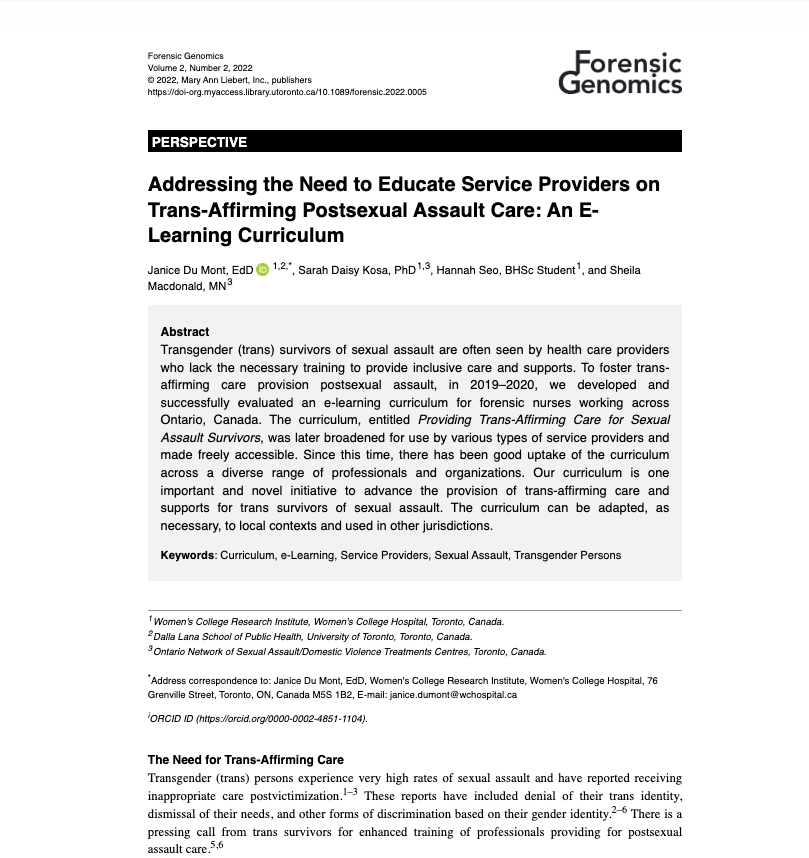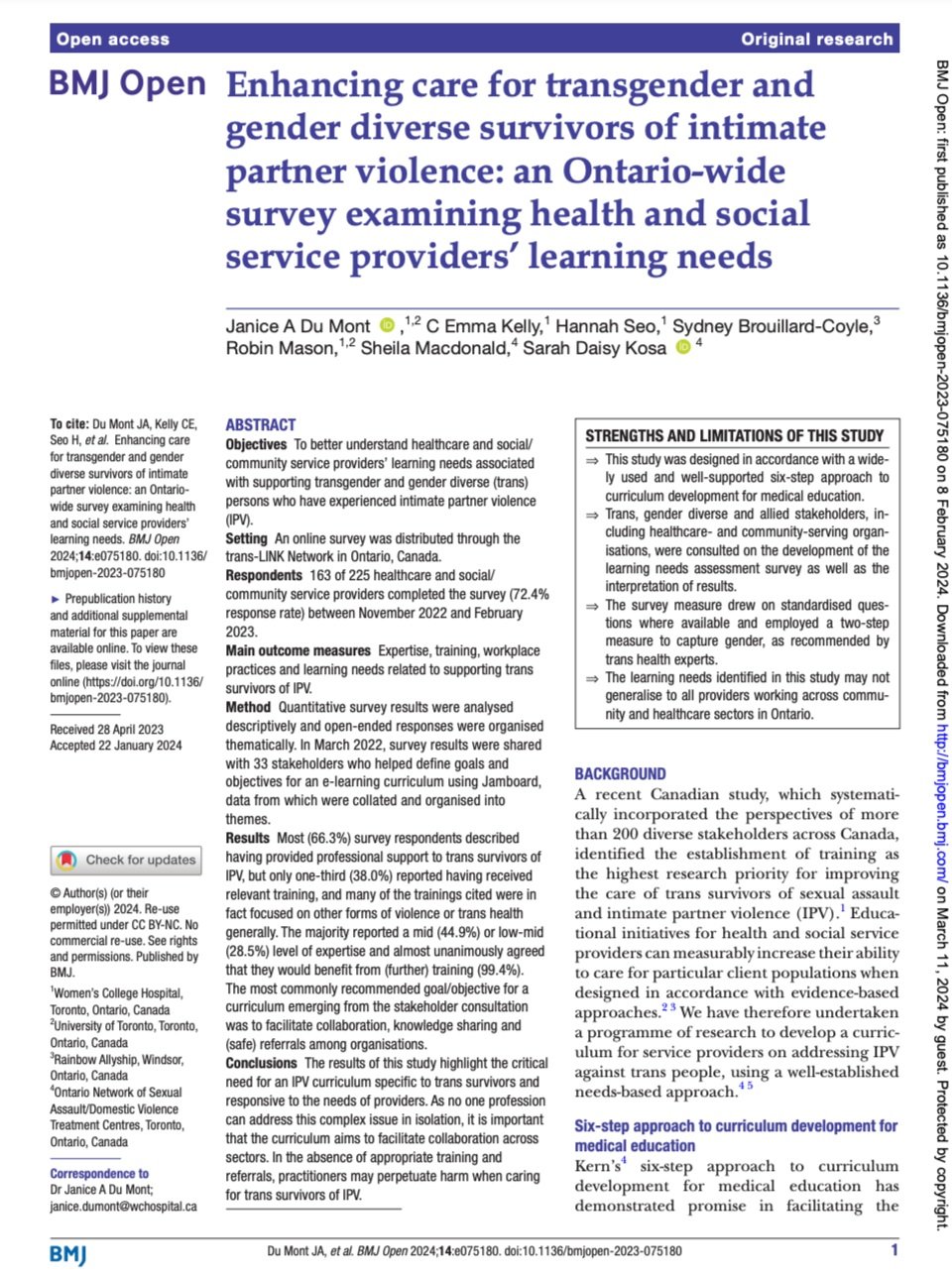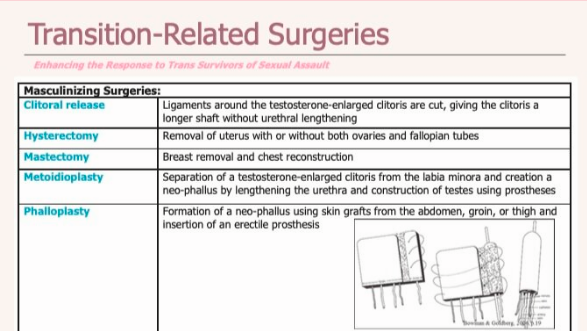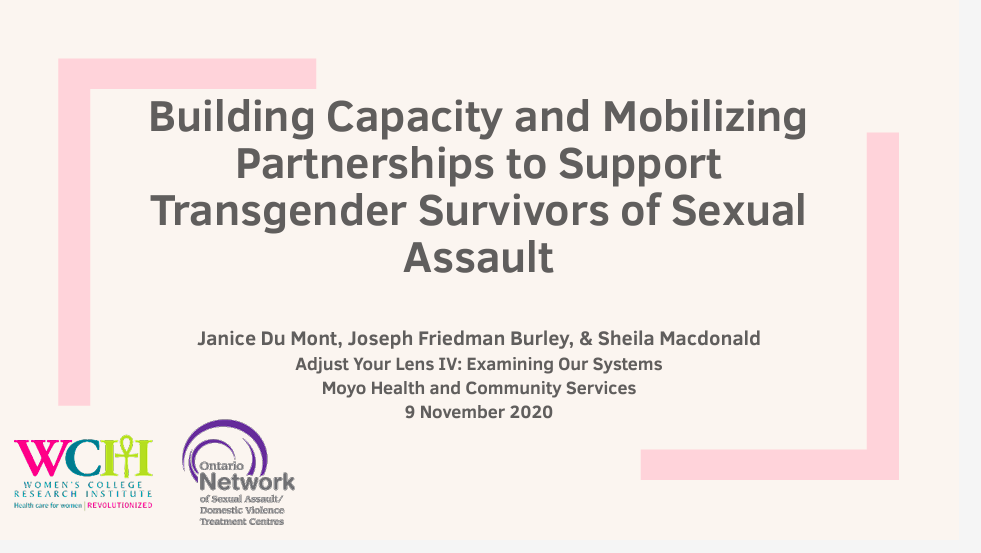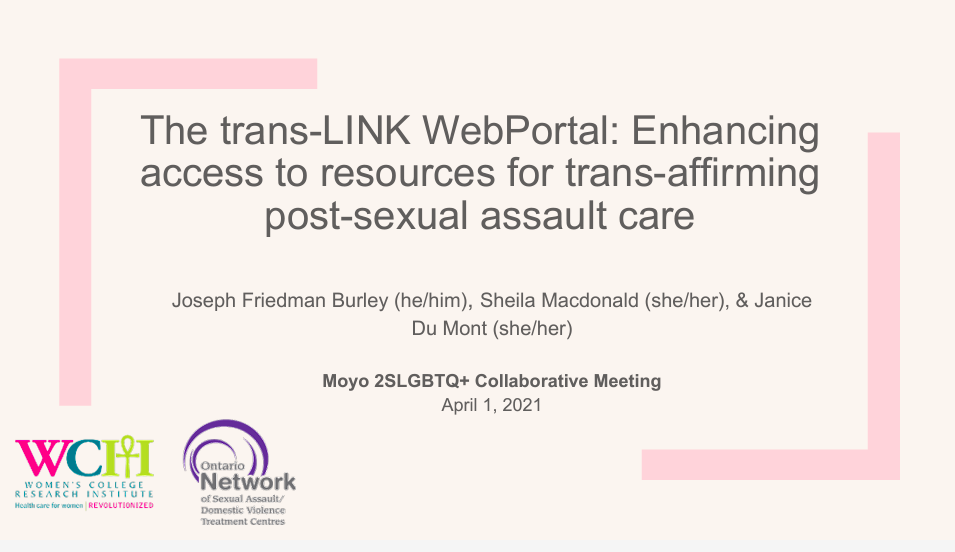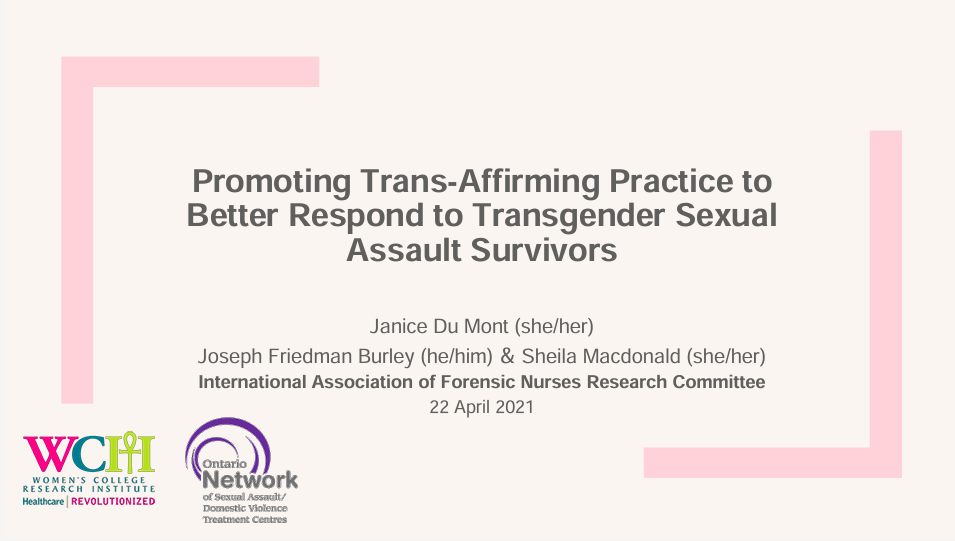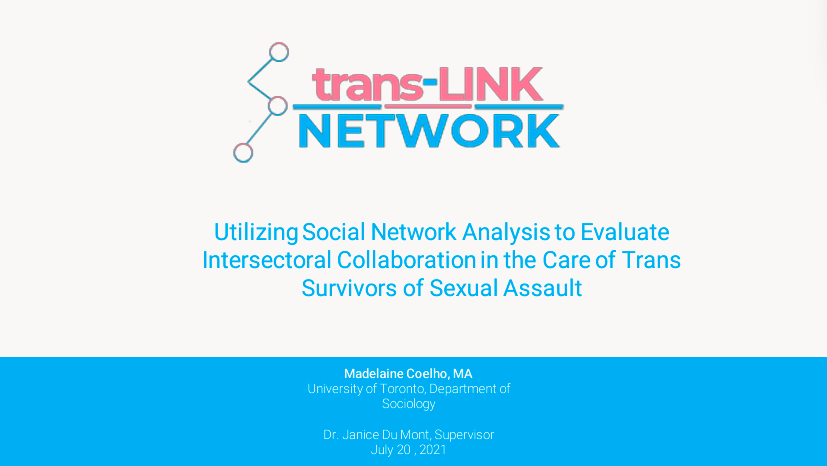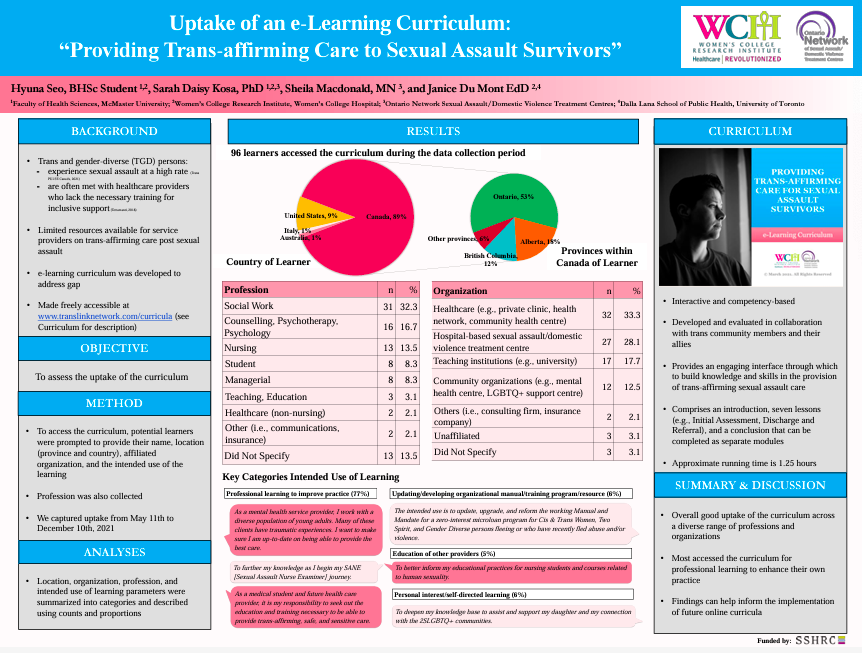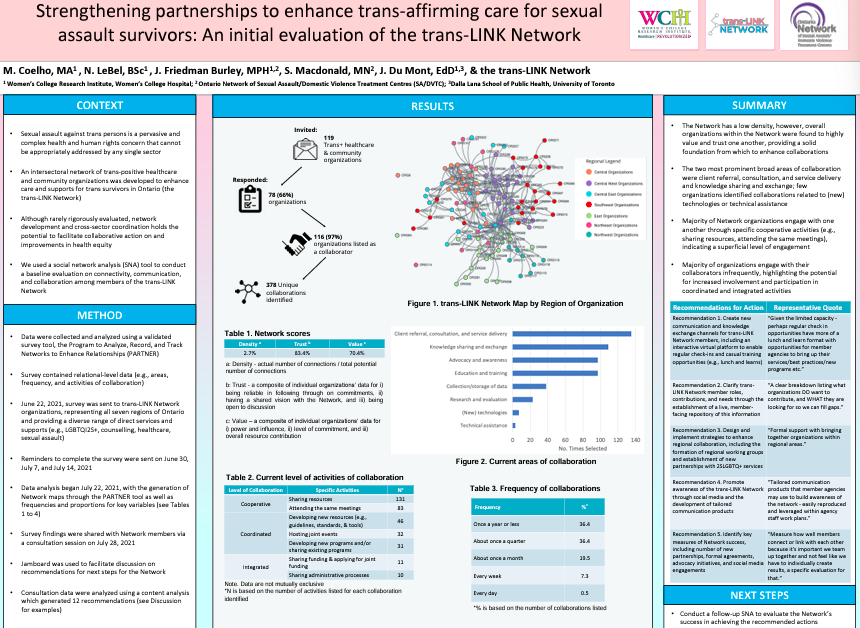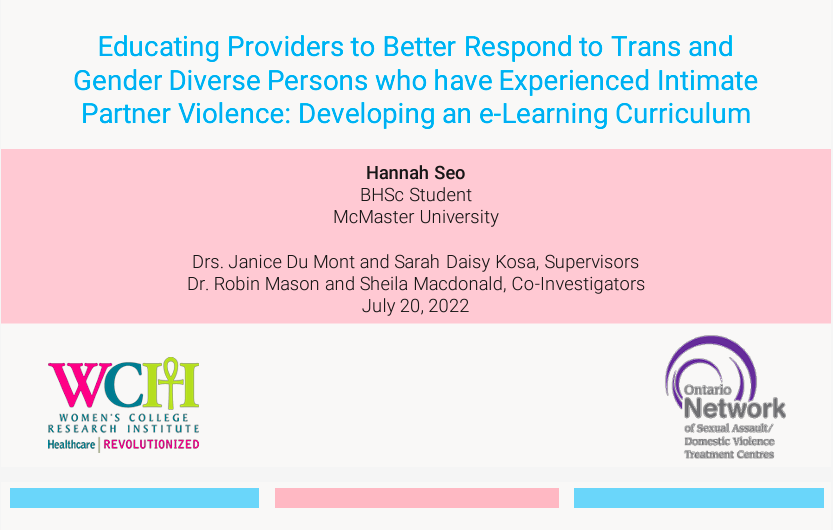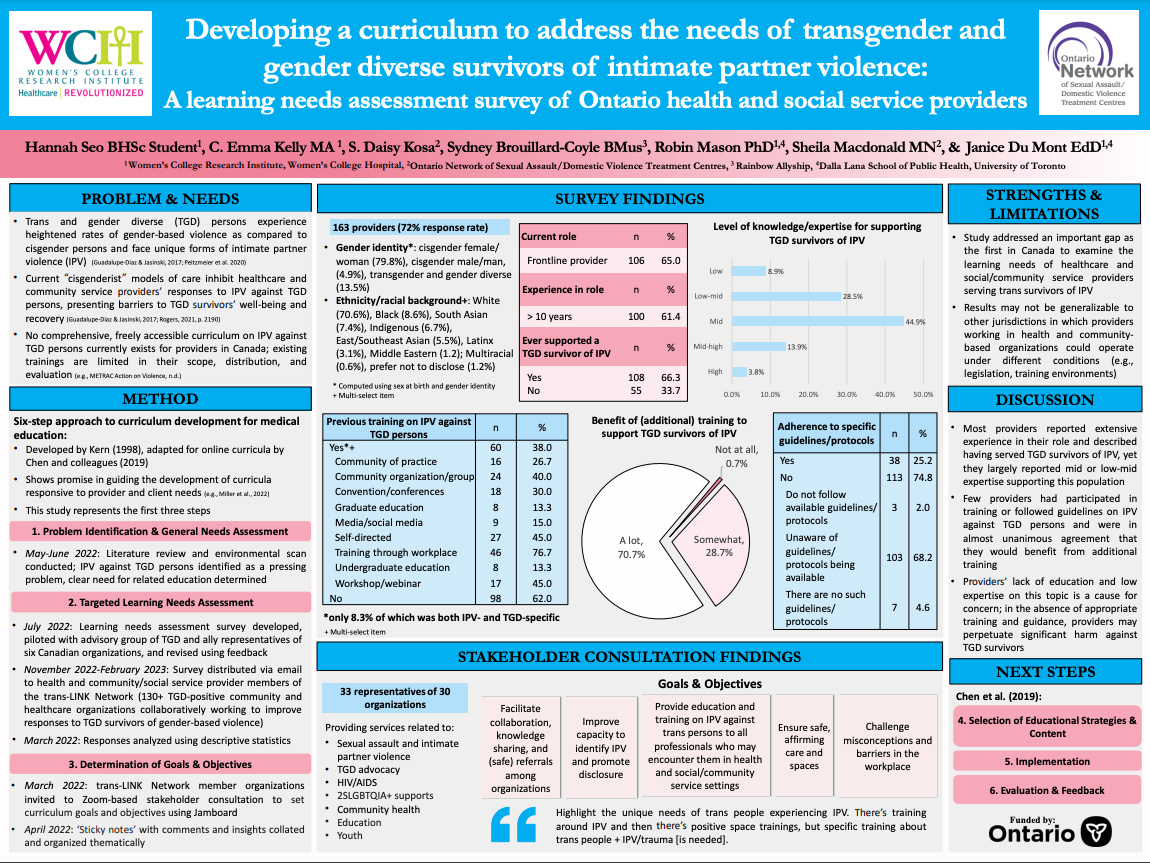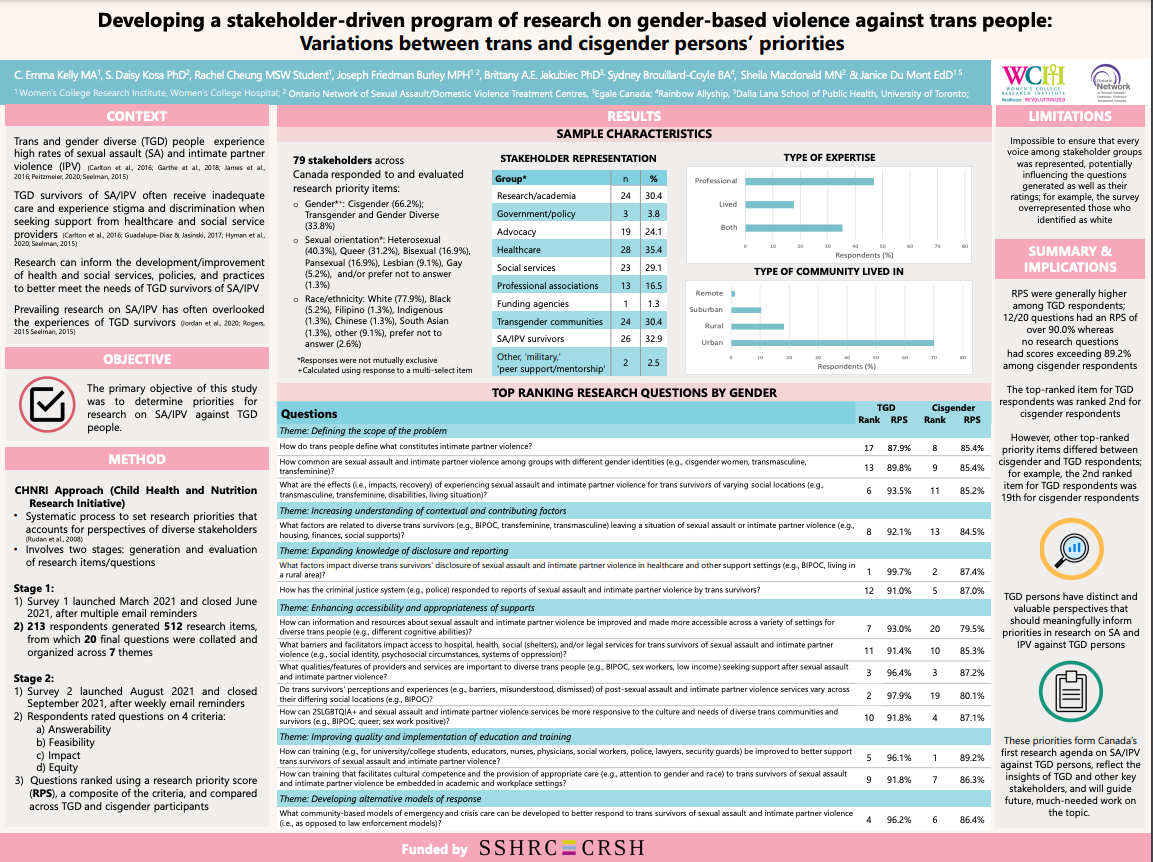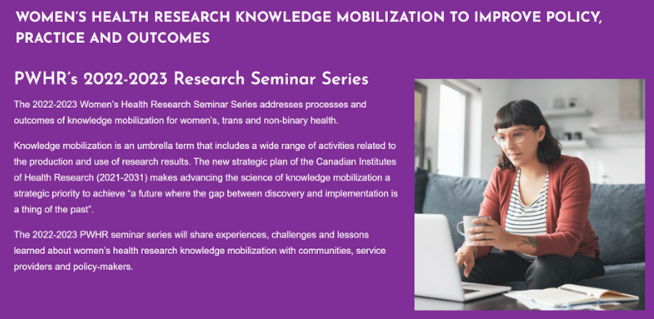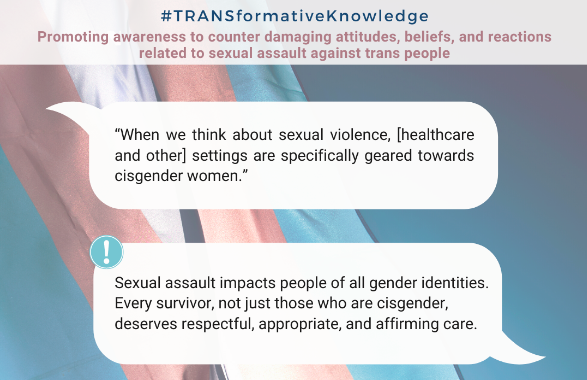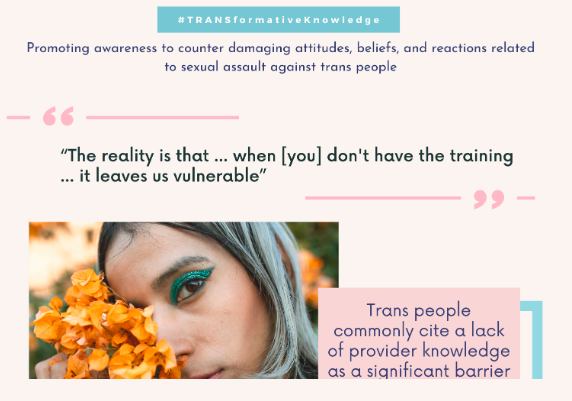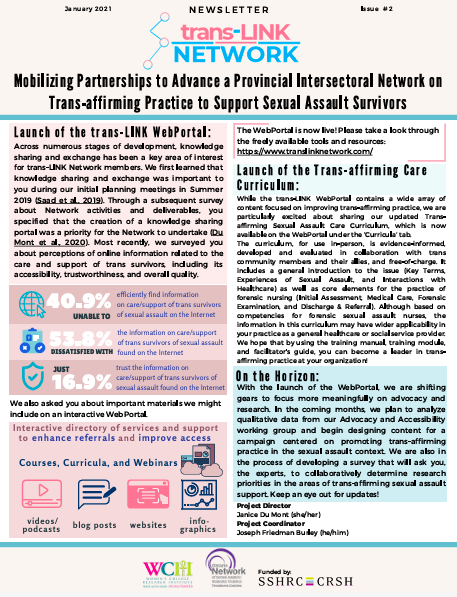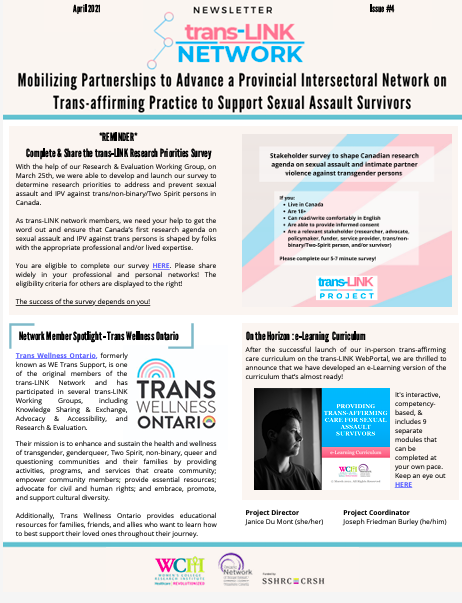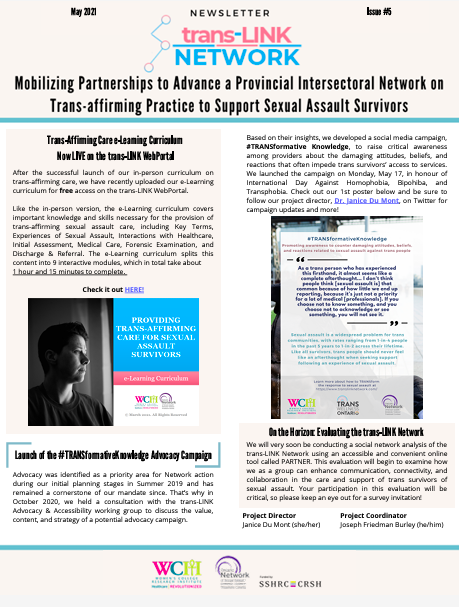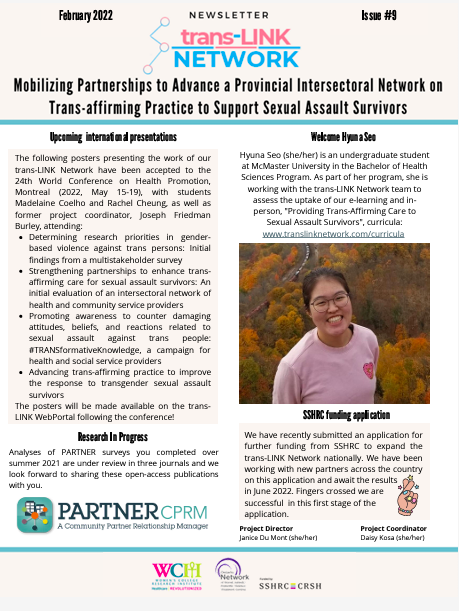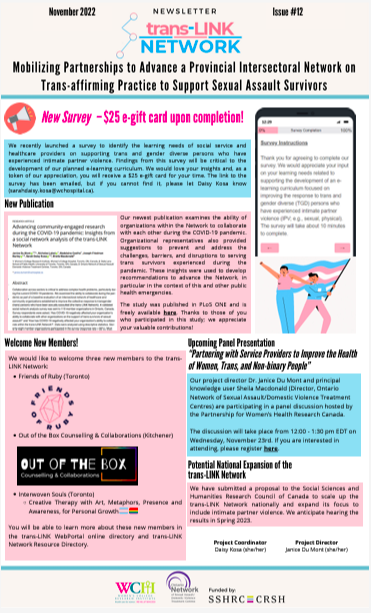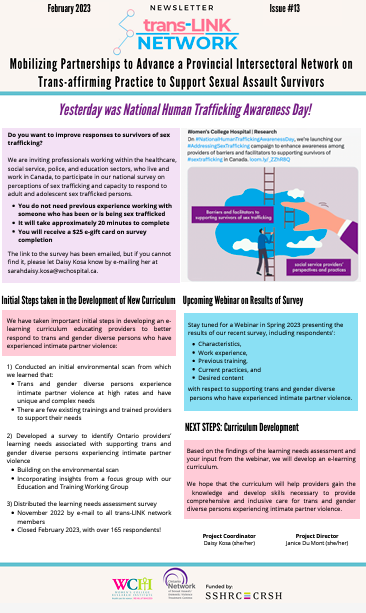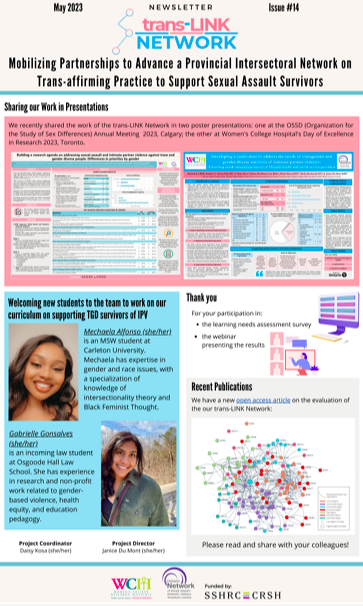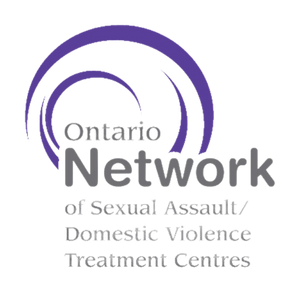History
The trans-LINK Canada Network is the evolution and expansion of the Ontario trans-LINK Network (June 2019 to June 2023). Below you can read about the development of the provincial network, its achievements, and access project newsletters and acknowledgments.
Development of the Provincial Network
Established an intersectoral Ontario network on trans-affirming practice to support sexual assault survivors
Context
In Ontario, approximately 20% of trans persons report lifetime experiences of sexual and/or physical violence as a direct result of their gender identity (Bauer & Scheim, 2015). Despite this, many trans persons delay or avoid seeking the care they need due to past and/or anticipated experiences of stigmatization, discrimination, and mistreatment in healthcare settings (Bauer, Scheim, Deutsch, & Massarella, 2014). Furthermore, while most trans services and supports are located in metropolitan Toronto, a reported 68% of trans Ontarians reside outside this region (Bauer, Michelle, Todd, Matthias, Scanlon, & Travers, 2010).
There was a clear and pressing need for province-wide, intersectoral action to address the issue of sexual violence against trans persons.
Dr. Janice Du Mont of Women’s College Research Institute, Women’s College Hospital collaborated with Egale Canada and the Ontario Network of Sexual Assault/Domestic Violence Treatment Centres (SA/DVTCs) on early stages of the trans-LINK Project – a multiphase initiative devoted to the development of a provincial intersectoral network on trans-affirming practice to better support sexual assault survivors.
Between June 7 and July 11, 2019, 106 representatives from Ontario’s SA/DVTCs and trans-positive community organizations attended one of seven regional Knowledge Mobilization and Community Engagement (KM-CE) meetings held in Toronto, Mississauga, North York, London, Ottawa, Sudbury, and Thunder Bay. A primary objective of these sessions was to connect service providers across sectors and regions in the hopes of establishing longer-term referral relationships, increasing collaboration, and enhancing the continuum of care for trans survivors across the province.
References
Bauer, G., & Scheim, A. (2015). Transgender people in Ontario, Canada: Statistics to inform human rights policy. Retrieved from: http://transpulseproject.ca/wp-content/uploads/2015/06/Trans-PULSE-Statistics-Relevant-for-Human-Rights-Policy-June-2015.pdf
Bauer, G., Scheim, A., Deutsch, M., Massarella, C. (2014). Reported emergency department avoidance, use, and experiences of transgender persons in Ontario, Canada: results from a respondent-driven sampling survey. Annals of emergency medicine 2014;63(6):713-20.e1. https://doi.org/10.1016/j.annemergmed.2013.09.027
Bauer, G., Michelle, B., Todd., Matthias, K., Scanlon K., Travers, R. (2010). Who are trans people in Ontario. Trans PULSE e-Bulletin 1, no. 1. Retrieved from: https://www.ohtn.on.ca/Documents/Publications/didyouknow/july28_10/E-Bulletin.pdf
Team
Trainees
Peer Leaders
-

Sydney Brouillard-Coyle
(ney/nem/nir)
-

Angelina Grace
(she/her)
-

Suru
(he/they)
Achievements of the Provincial Network
Collaborated with ≈130 trans-led/positive community organizations and violence treatment centres to plan, form, and mature the provincial intersectoral network.
Highlights
Articles
Abstracts
To view the full abstract, click here.
Du Mont, J., Daisy Kosa, S., Saad, M., & Macdonald, S. (January-December, 2020). Building an intersectoral network to champion supports for trans survivors of sexual assault: Survey findings from health and community leaders. Global Qualitative Nursing Research, 7. doi: 10.1177/ 2333393620932494
Research Briefs
To view the full brief, click here.
Friedman Burley, J., Miljanovski, M., Saad, M., Macdonald, S., Bradley, C., & Du Mont, J. (2019, September). Building a provincial intersectoral network on trans-affirming practice to support sexual assault survivors: Planning stage [Research Brief]. Women’s College Research Institute, Women’s College Hospital, Egale Canada, and the Ontario Network of Sexual Assault/Domestic Violence Treatment Centres. Available from: Women’s College Research Institute, Women’s College Hospital
trans-LINK Network Directory
This directory was created as part of ongoing efforts to foster connection and collaboration across trans-LINK Network health and community organizations in Ontario. Listings included a brief summary of services as well as up-to-date contact information to aid in consolidating partnerships and making safer and more seamless referrals across sectors and regions. The resource was designed to be of use to those providing services and other supports to trans survivors of sexual assault as well as to survivors themselves.
































